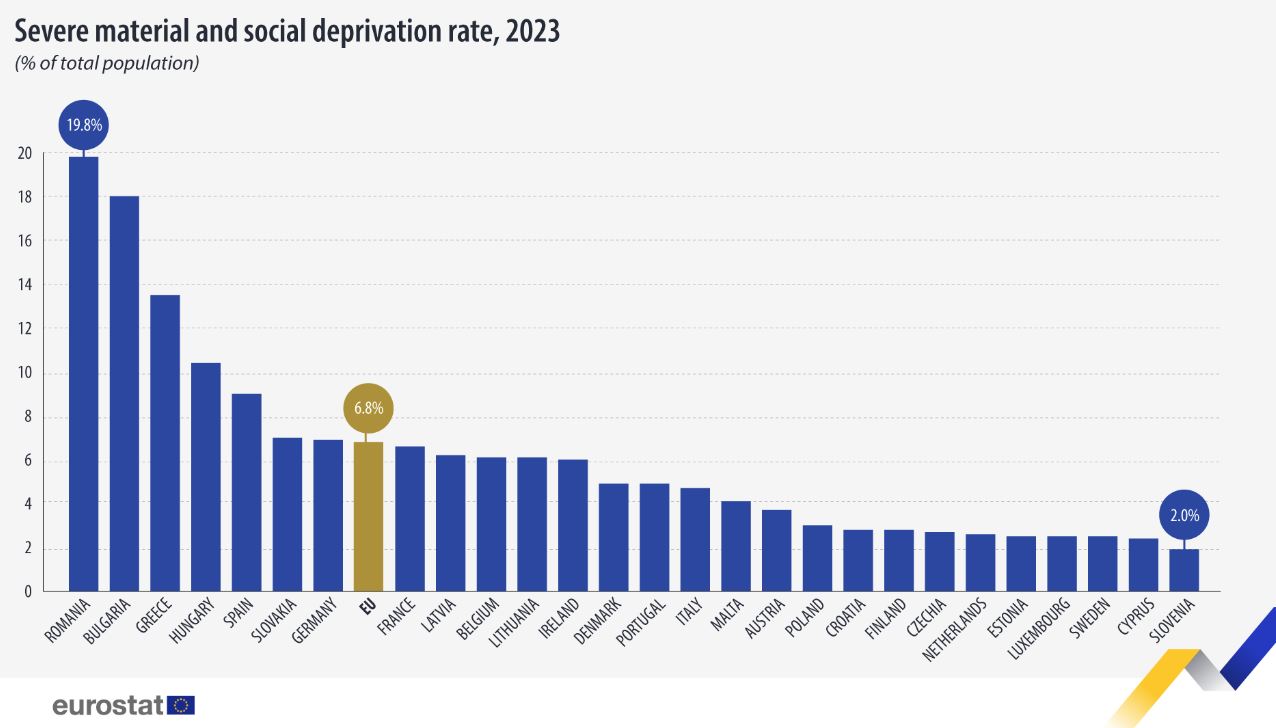
The report paints a troubling picture for Greece in 2023, where 13.5% of the population faced severe deprivation, struggling to meet essential needs linked to social well-being. This figure is significantly higher than the European Union average of 6.8%. Only Romania, with 19.8%, and Bulgaria, at 18%, fared worse. Other countries with notable rates of deprivation included Hungary (10.4%) and Spain (9%). Conversely, the lowest levels were recorded in Slovenia (2%), Cyprus (2.4%), Luxembourg and Estonia (2.5%).
Severe deprivation and social exclusion
Severe material and social deprivation, as defined by Eurostat, refers to the proportion of the population that is unable to afford at least 7 out of 13 key items. These are divided into two categories: six at the individual level and seven at the household level.
Household-level items include:
- Ability to cover unexpected expenses
- Affording one week of annual holiday away from home
- Making timely payments on bills, rent, or loans
- Being able to have a meal with meat, chicken, fish, or a vegetarian equivalent every other day
- Keeping the home adequately warm
- Access to a car or van for personal use
- Replacing worn-out furniture
Individual-level items (for those aged 16 and over) include:
- Having an internet connection
- Replacing worn-out clothes with new ones
- Owning two pairs of shoes, including one for all-weather use
- Spending a small amount of money on oneself each week
- Participating in regular leisure activities
- Meeting friends or family for a meal or drink at least once a month
Beyond material hardship, social deprivation is also pervasive, manifesting in the lack of access to resources and opportunities crucial for a person’s well-being. It includes factors such as education level, employment status, and living conditions in deprived areas.
While social deprivation primarily focuses on the scarcity of financial or material resources, it often leads to broader social exclusion, limiting individuals’ full participation in their communities and societies. This exclusion extends beyond material deprivation and includes isolation from cultural, political, and civic activities.
Impact on health and society
Eurostat’s findings also highlight the severe knock-on effects of social deprivation, with research showing it impacts health behaviours, increases vulnerability to disease, and limits access to healthcare services. The inability to engage in social life, coupled with economic constraints, compounds the challenges many in Greece face, exacerbating their marginalisation from broader society.
______________________________________________
Are you seeking news from Greece presented from a progressive, non-mainstream perspective? Subscribe monthly or annually to support TPP International in delivering independent reporting in English. Don’t let Greek progressive voices fade.
Make sure to reference “TPP International” and your order number as the reason for payment.